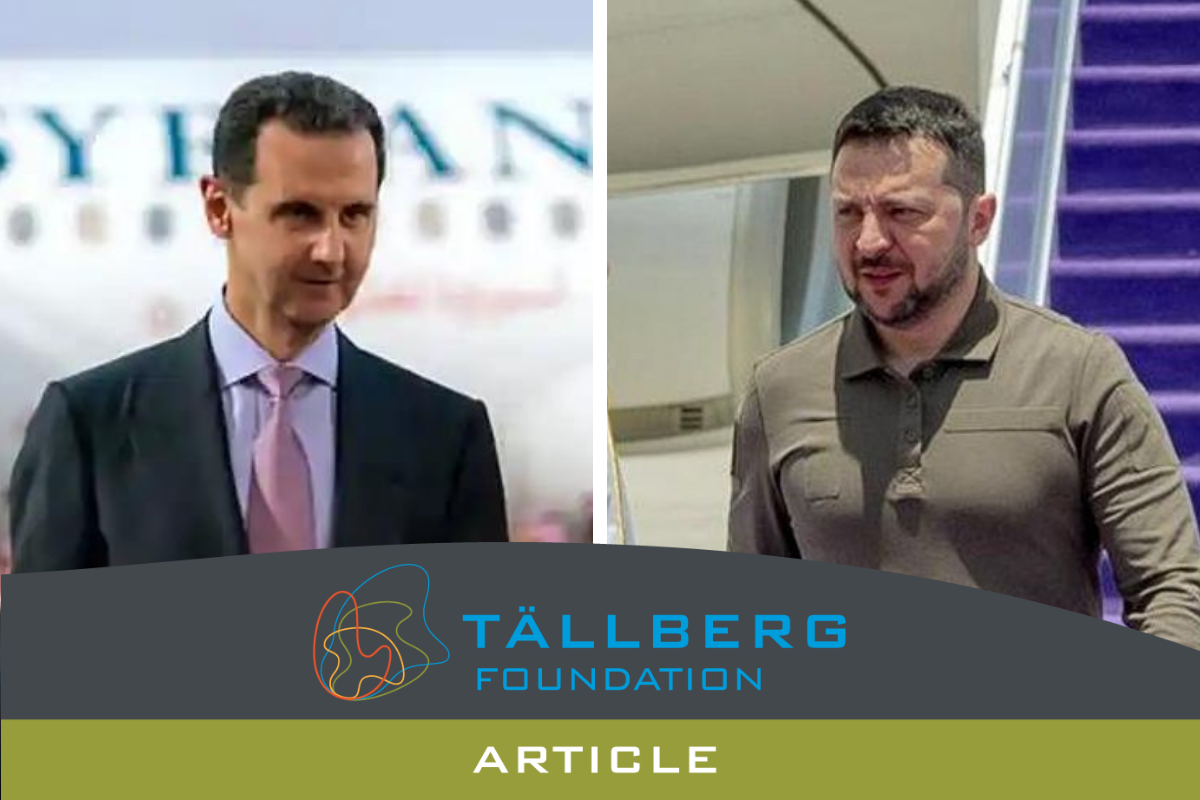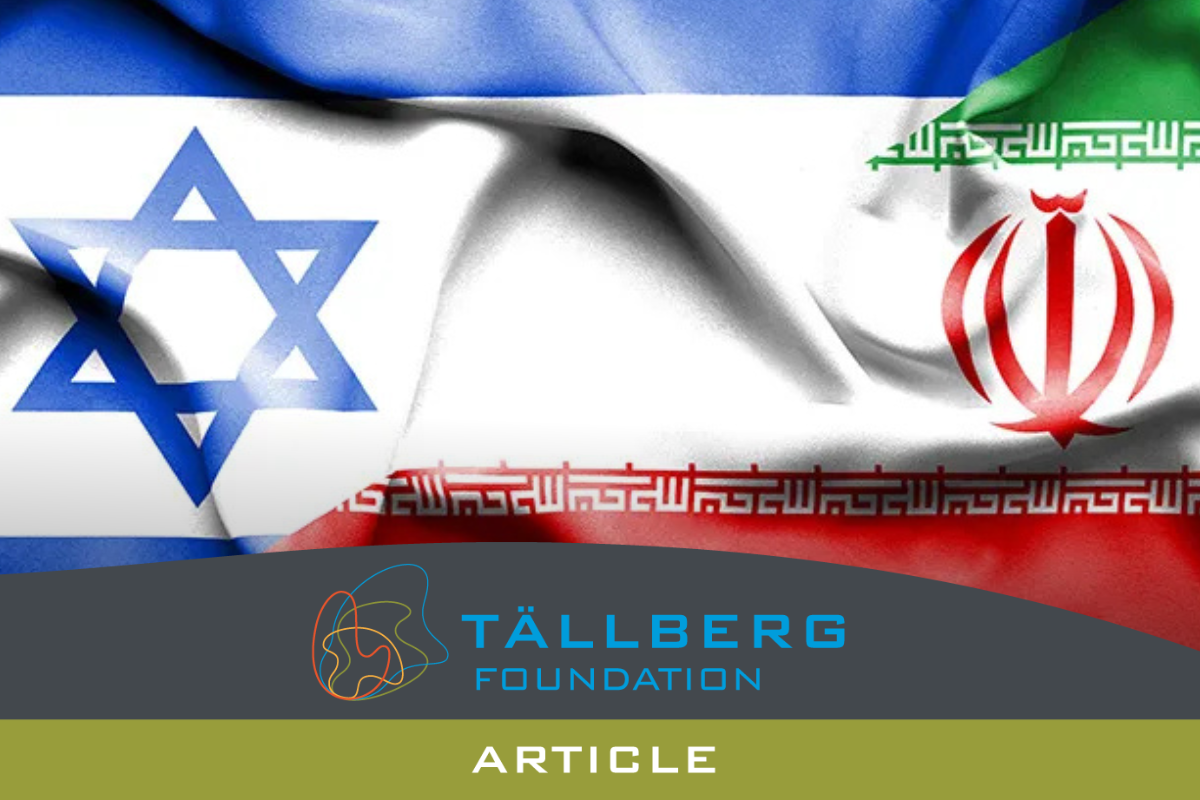In the 1970’s Henry Kissinger argued that the goal of America’s Middle Eastern policy was to persuade the Arabs that the road to peace ran through Washington, not Moscow in the days when the Soviet Union’s influence dominated in countries like Egypt and Syria. Fast forward to 2023, does the road to peace now run through Beijing, after China recently facilitated rapprochement between seemingly implacable enemies Saudi Arabia and Iran?
Gilles Kepel, one of France’s leading experts on the Middle East, thinks it does. In a recent New Thinking for a New World podcast, he argues that there are components of the China-Saudi-Iran deal “which America cannot deliver.” He points out, “Beijing brokered the deal between Saudi Arabia and Iran because Beijing could deliver Tehran…. Tehran needs Beijing in order to survive economically; without Chinese help the Iranian economy would be in shambles. Hence, if China does not want Iran to tell the Yemeni Houthis to send drones on Saudi Arabia, Iran won’t give the instruction to its allies. That clearly America couldn’t do.”
Further, Kepel says that the Saudis have carefully watched U.S. and Israeli efforts to push back on Iran’s nuclear weapon ambitions. Despite many tactical successes, the reality is that Iran is now reportedly a few months away from being able to build a bomb. Kepel concludes that “The Saudis therefore are dubious about the West’s capacity in general, America but also Israel, to check the Iranian threats.” Thus, they are willing to “turn to China because they think that in the short term, at least, it is performing better.”
At the same time, there also has been an important shift in the relationship between Saudi Arabia and the United States. One of the underpinnings of the long-standing oil-for-security foundation of that relationship disappeared when the United States regained its energy independence with shale oil, forcing the Saudis to find new clients especially in Asia. Indeed, China is now Saudi Arabia’s largest market, followed by India, Japan and South Korea. “The Chinese are not interested in having their oil in Saudi oil tankers interrupted,” says Kepel, which means that Beijing has in a way inherited the oil-inspired element of America’s interest in protecting Saudi Arabia.
Meanwhile, much to Washington’s chagrin, Saudi Arabia welcomes Russia into a key decision-making role in what is now called OPEC+, ignores U.S. demands to drive down oil prices, and trades with Russia despite widespread Western sanctions. As Kepel points out, there is little love lost between the Saudi Crown Prince Mohammed bin Salman (MBS) and President Biden which has led to several public Saudi “slaps in the face” to American interests in recent months.
Kepel readily admits these are early days in the Middle East’s geopolitical transformation. All the big pieces—China, United States, Russia, Iran, Saudi Arabia, Israel—are still moving. In particular the new relationship between Saudi Arabia and Iran, which would be the keystone of any new regional architecture, has yet to be tested. What has emerged so far as “more a sort of armed peace or armed truce than real peace,” he says.
Nonetheless, it’s clear to Kepel that the Saudis are deeply invested in this new approach which aims to end the confrontation between Sunnis (led by Saudi Arabia) and Shias (led by Iran) that has shaped regional politics for the last several decades. “Mohammed bin Salman has a completely new agenda. He is done with the extreme Wahhabi puritanical Islam. It’s a sea change within the Saudi fabric. He’s refocusing on influence over the whole Arab world.” To succeed requires ending the confrontation with Iran.
But, what about the elephant in the room, Israel? The good news, says Kepel is “China is not interested in having Iran attacking Israel.” The less good news is that the Abraham Accords—which saw Israel establish diplomatic relationships with the United Arab Emirates, Bahrain and Morocco and begin negotiations with others, including Saudi Arabia—may have run aground on the rocks of Bibi Netanyahu’s electoral alliance with Israeli’s extreme right wing. “This has raised the level of outrage and Arab antagonism against Israel,” he observes, and the result could undermine Israel’s strategy to align itself with the Arabs.
As proof points Kepel cites state visits by Syria’s President al-Assad to Oman and the UAE in March and his participation in last month’s Arab League summit in Jeddah. Kepel argues that inviting al-Assad to Jeddah served the dual purpose of diverting attention from the Abraham Accords’ relationships with Israel and of demonstrating independence from the West, where Assad is still considered a war criminal. Further, he points to the Jeddeh summit communique which explicitly recognized the obligation of the King of Morocco to defend the Palestinians militarily. That certainly was not a tune the Israelis wanted to hear played again.
The Saudis clearly believe they are moving towards a new Middle East. Kepel describes MBS’s approach as “super transactional” and points out that it is not rooted in the post-war world order, nor does it recognize “American hyper power.” He thinks the underlying ambition is much bigger than simply switching sides in a bipolar world with the West on one side and China and Russia on the other. Proof? Kepel says the fact that MBS invited Ukrainian President Zelensky to the Jeddah summit was a signal to Russia that Saudi support should not be taken for granted, and that the Assad invitation was a signal to the United States which had worked hard to overthrow him.
Jeddah demonstrated the Saudi Crown Prince’s global leadership ambitions. Who else would invite to the same meeting a leader who survived in office because of the brutal armed intervention of the Russian military as well as a leader who is surviving in office despite Russian military intervention?
Kepel says the Saudis expect to play a leading role in this new world. That, of course, is why it was to the Chinese, not the Americans or the Europeans, that MBS turned when he wanted to change how his region works.
Whatever else it is, that’s not Henry Kissinger’s Middle East. Will it be better or worse? TELL US WHAT YOU THINK IN THE COMMENTS BELOW.
ABOUT OUR GUEST
 Gilles Kepel authored more than 20 books on the Middle East, North Africa, Islam in France and Europe, translated in many languages (lastly, Away from Chaos / The Middle East and the Challenge to the West, Columbia Univ. Press). He has taught at Sciences Po in Paris, the LSE in London, Lugano in Switzerland, among others, and advised senior European and Arab political and business leaders.
Gilles Kepel authored more than 20 books on the Middle East, North Africa, Islam in France and Europe, translated in many languages (lastly, Away from Chaos / The Middle East and the Challenge to the West, Columbia Univ. Press). He has taught at Sciences Po in Paris, the LSE in London, Lugano in Switzerland, among others, and advised senior European and Arab political and business leaders.





Thanks for highlighting the pieces that keep MBS a key player in the Middle East. China needs a staging ground to make the construction of the Great Silk Road. Iran and Saudi Arabia are the most likely choices to play that part. Saudi Arabia will continue provide the oil and Iran will contribute to hosting the engineering companies. China is strategic and so are both Iran and Saudi Arabia who are oil producers too.
Thanks for sharing.
MBS has to utilise all opportunities to show that Saudi Arabia has secular interests too beyond the Sharia restrictions and extending further than being a fundamentally Islamic state. China, Iran, Syria, Russia, the USA and the African continent offer such opportunities to showcase the Saudi hegemony too.